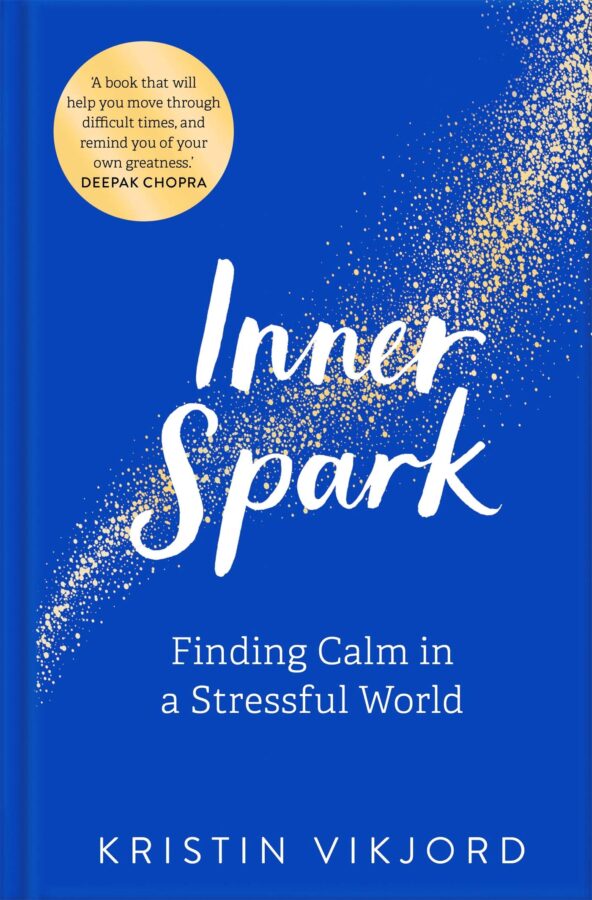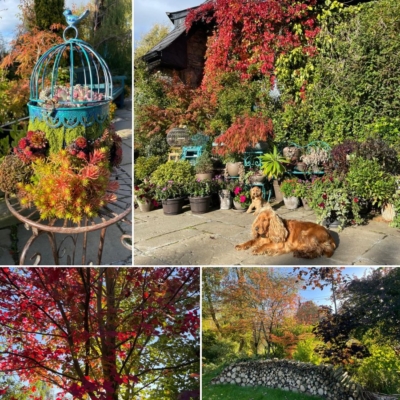Psychologist Dr Kristin Vijkord writes seven prescriptions for anyone struggling with their mental health …
1. Try A Little Patience
When we have emotional difficulties to deal with, we experience restlessness, an uneasy feeling which takes hold of us deeply and very uncomfortably. Inner restlessness can make you very impatient and creates resistance towards what’s happening in your inner landscapes. This resistance in turn makes you feel even more unease, more restlessness and more impatience.
Through the practice of patience, we build tolerance and help ourselves overcome difficulty instead of becoming overwhelmed by whatever situation we’re facing. We learn to rest in the knowledge that difficulty comes and goes, and that whatever the intensity of our unease may be, it will not last forever. You can believe and hold hope that your symptoms are not going to last forever.
Remind yourself every day to try to be patient. You may feel that you are ready for change and it’s taking too long: remind yourself that this process takes time. Remind yourself how many years it took you to integrate your regular ‘unhealthy’ pattern of thinking or behaving into your life, then allow yourself time to unravel that and learn new, more skilful ways of being and relating to yourself. Be patient with becoming patient!
Start by making a written agreement with yourself. Put this somewhere visible so that it reminds you of your intentions frequently and easily. You could even create a schedule for yourself and plan check-in moments to evaluate your progress. Feelings of inner restlessness and impatience can be intense. Take it step by step, hour by hour, day by day. You don’t need to focus on everything that you want to change. Focus on the micro-steps and allow yourself to master these, one by one. Commit to the process, not the outcome. And most of all commit to yourself in the long term.
2 Practice Self-Kindness
Practising kindness can be challenging, especially if your sense of self-worth is low or if you feel very negatively towards yourself. When unease is high, the inner critic and self-judgement are high. Make an agreement with yourself that you can practise this now, even if you cannot feel it or quite believe in it, and then take in the message at some point in the future when you fell more receptive to it. Practising kindness involves strengthening your goodwill muscles and positive feelings. The practice won’t necessarily make you feel good immediately, but it will help you build a nurturing relationship with yourself so that, in turn, you can have a better relationship with others.
Our culture is infused with values of pious hardship, and kindness towards ourselves is far from the social norm we have grown up with and are used to. In most contemporary yoga classes, you’ll hear about ahimsa, a Sanskrit word which translates as “non-violence”. In yoga practice this means not pushing yourself in challenging postures, accepting yourself, your body, and your thoughts and emotions as they are in the moment. In mindfulness practices you’ll hear about metta, a Pali word which translates as lovingkindness. In the same vein as ahimsa, metta also encourages us to wish for health, peace, and joy, not only for loved ones and others but also for ourselves. Wishing this for ourselves is often the most difficult part of a metta practice.
The schools of thinking these practices come from are infused with the idea that being good to others is the essence of being. Heartfulness, compassion and love to all beings are fundamental to the Eastern belief systems, and these balance the perfectionist ways of our Western society beautifully. These practices allow for a different inner voice on the strict, ambitious, results-oriented one we are used to. This gentler tone legitimises a more generous, kind attitude.
Start being your own best friend, meeting yourself with kindness. This kindness is health-promoting, and will create more understanding for and acceptance of your current state. Over time, it might increase your feelings of appreciation and gratitude, as you deliberately invite yourself to take stock and notice what resources you have accessible to yourself, instead of drowning yourself in what you don’t have or what is scarce. Formal practices you could do are meditations of metta or loving-kindness, self-compassion, or visualisations of opening the heart. Informal practices such as using your skills and efforts to help others is a way to remind yourself of your strengths and abilities. Start with ten minutes twice a week. Gradually increase to daily practice over the next month.
3 Togetherness
Finding your squad, crew or gang is more important than you might think. Who we feel connected to and where we belong can change throughout our lives, but there are always a few people who mean more to us than others. Even for those of us who enjoy our alone time and can be alone without feeling lonely, our relationships are important. Togetherness is about understanding that investing in relationships is a matter of emotional wellbeing and is worth putting effort into. If you feel left out or like you don’t belong, then ask yourself what you do to nurture the relationships you have. How do you engage with others? How do you nourish the relationships in your life? Feeling like you belong and feeling togetherness requires reciprocity. Despite the business of our day-to-day lives, it’s of utmost importance that we invest in togetherness. Think about the relationships you have. How are they meaningful? Spend time with people. Be social. Care about someone; engage in their lives. Invite someone for a cup of tea and a chat. Show interest in them, they will show interest in you.
4 Be In Nature
The sensory input that we receive in natural environments is less intense than in cities and being in nature affects our state of mind positively. Biophilic and attention-restoration theory are proven to have a positive impact on our mental health. Research shows nature has positive effects on mental fatigue, stress-related conditions, and focus and attention issues as it increases a sense of inner peace. In addition to the advantages of simply getting some fresh air and moving the body, it’s also free and sustainable. Engage with nature for a minimum of 15–30 minutes daily, more when you feel overwhelmed.
5 Take A Break
A potent pause is when you intentionally take time out from your daily routine. In doing so, you stimulate parasympathetic activation of the nervous system: you literally press the body’s “pause” button. This is especially valuable when we’re constantly on the go and feeling stressed-out. Stimulating the relaxation response is beneficial for emotional wellbeing. Pauses can be anything that invite you to step out of the reactive mind or autopilot mode – walking, dancing, cooking – any activity that you can enjoy with mindfulness and attentiveness. This prescription recommends 30 minutes every day with one formal practice here: commit to 10-15 minutes of breathwork with prolonged exhales in the morning and evening.
6 Move Your Body
Any movement that invites you into gentle flows and increases body awareness can have a positive impact on your wellbeing. Slow-flowing activities such as yoga, dancing or tai chi work well for 15-30 minutes a day. At times, you’ll probably want to shy away from it. Go to a class anyway, book an online session or seek out another form of movement therapy. It’s important to find which practices can be beneficial in what circumstances or for what conditions. Make sure you find a teacher with a sound knowledge of the practice as well as its therapeutic implications for both physical and mental health.
7 Play All Day
Studies show that playfulness supports overall satisfaction in life. It’s been shown to be positively related to the ability to cope with difficult circumstances. Choose an activity you enjoy or anything creative that lights your spark. Children have a way of being playful that’s embodied mindfulness. In the beginning, make time for playfulness at least once or twice a week. Gradually work towards bringing it into your everyday life. Ten minutes might be enough. The most important part is the consistency and frequency, so learn to keep inviting moments of levity into your daily routine.

Inner Spark, Finding Calm in a Stressful World, by Kristin Vikjord, €14.99, Bluebird.
SEE MORE: How Vegan Chef Holly White Starts And Ends Her Day











